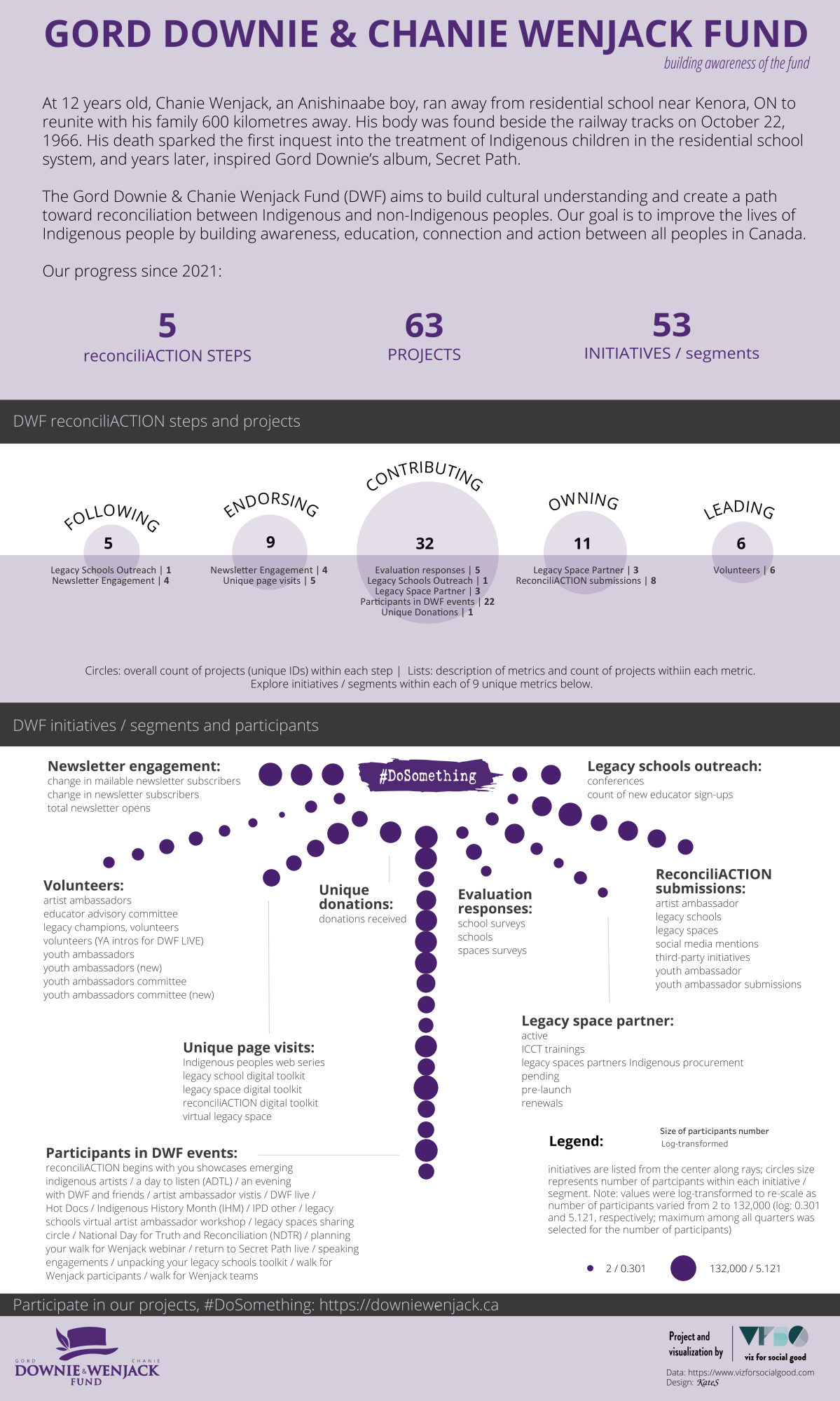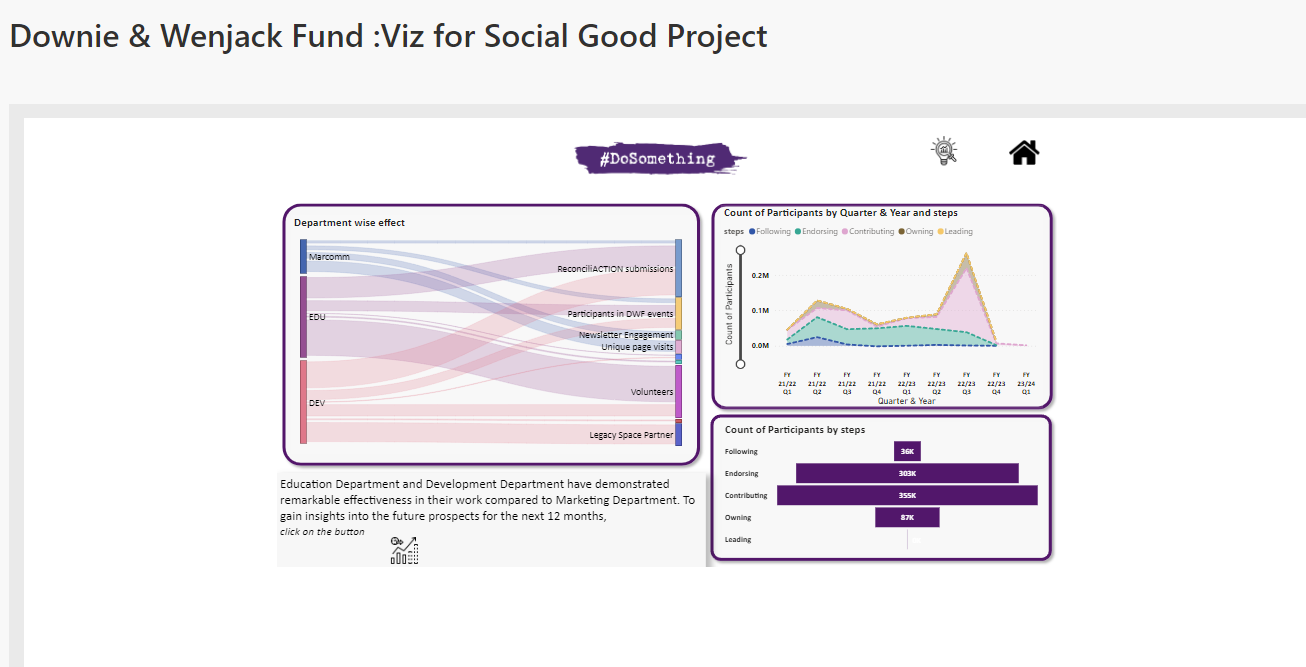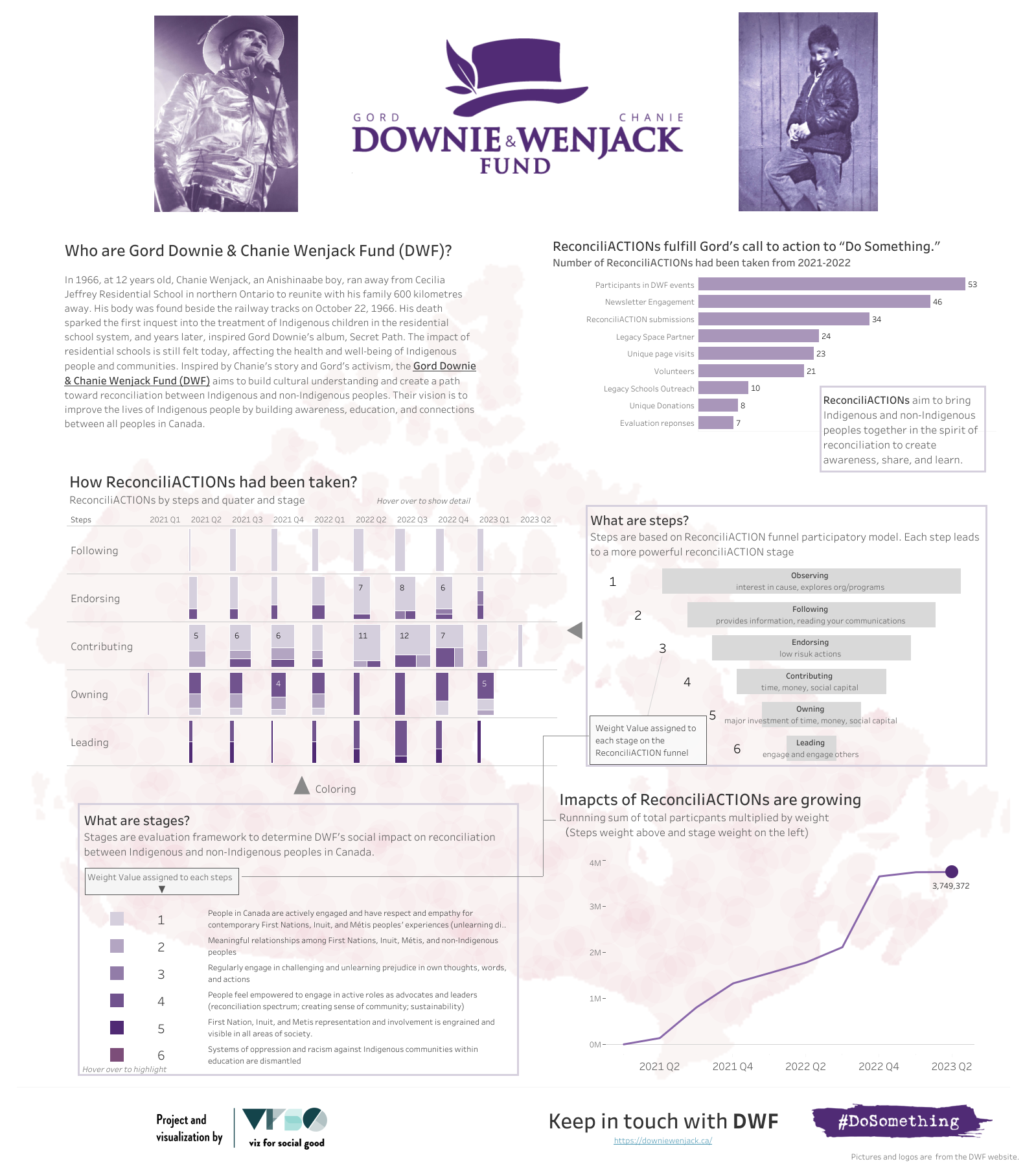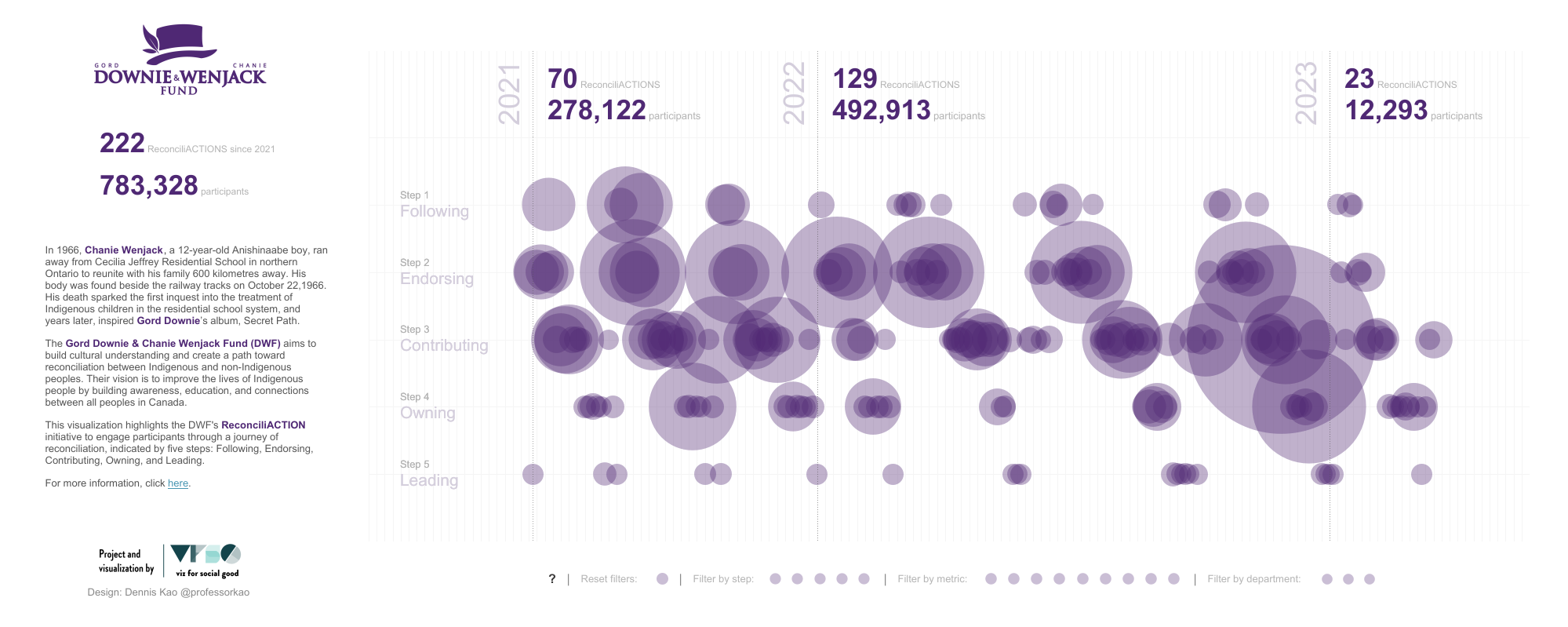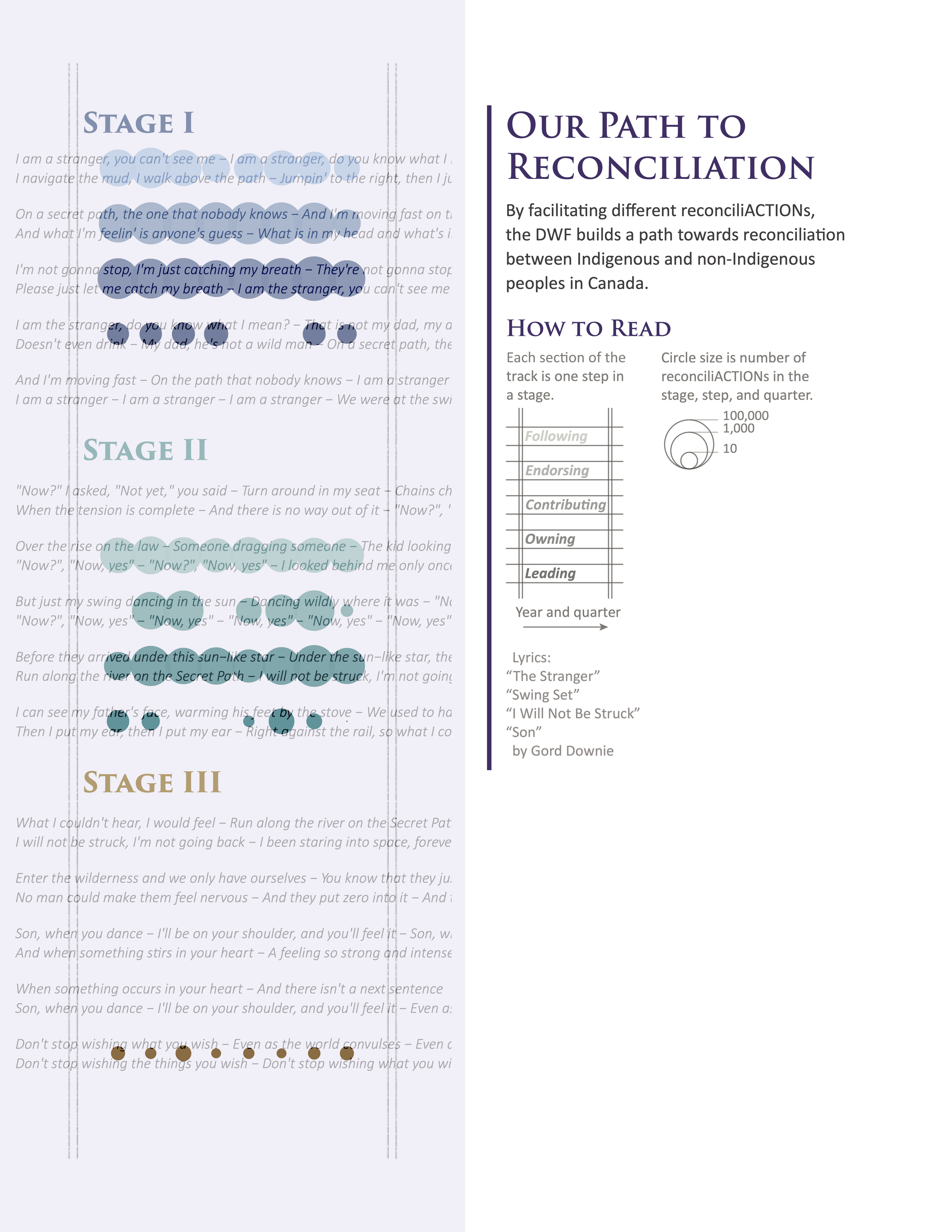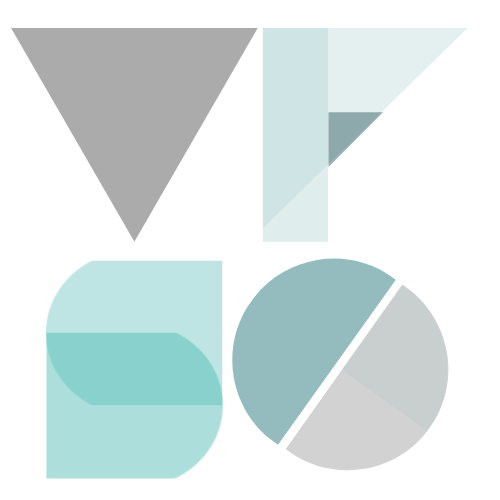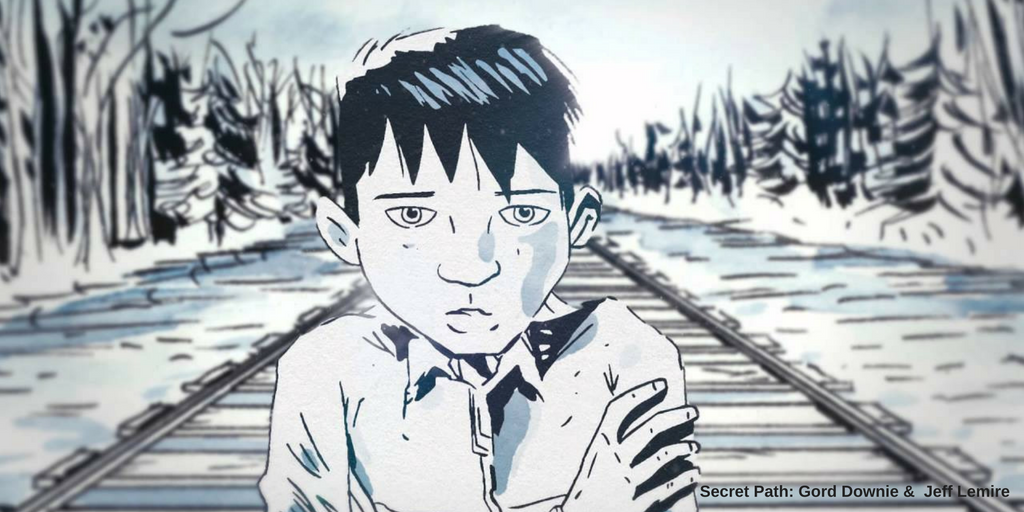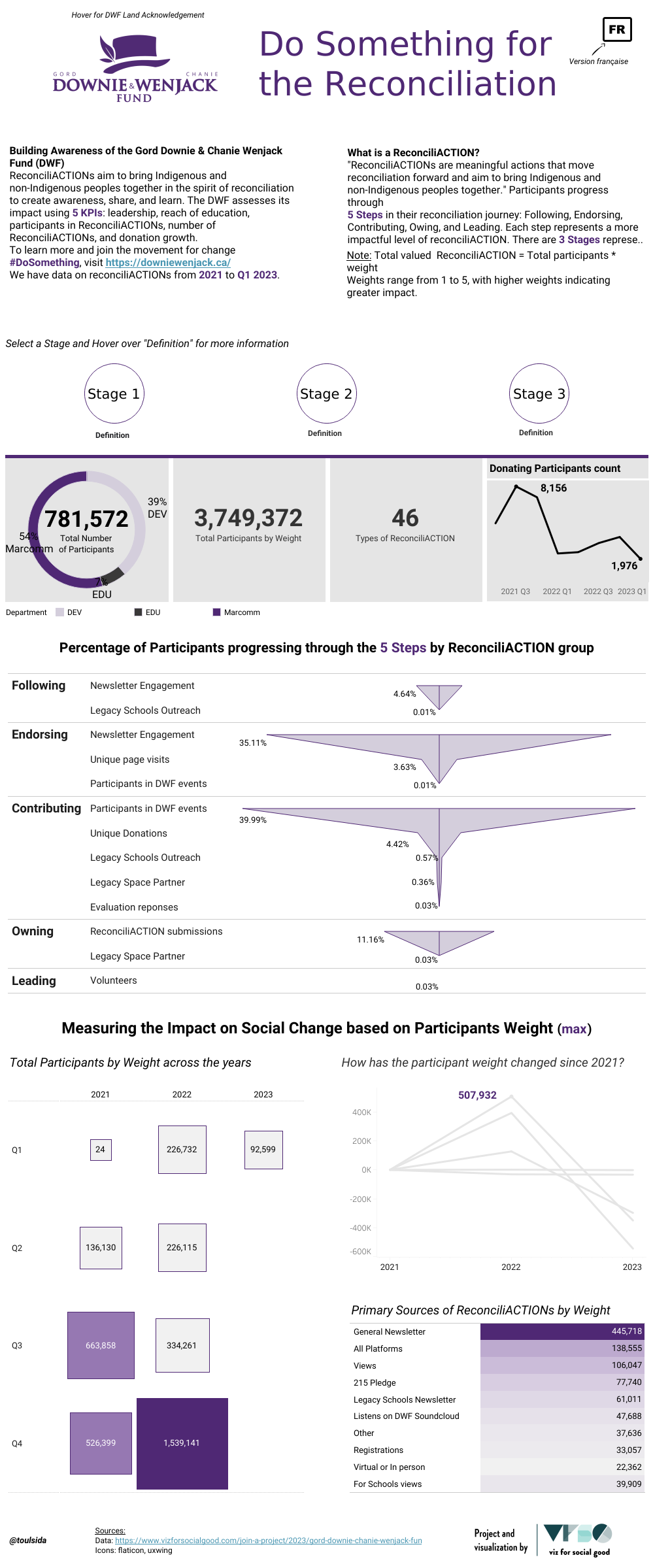Building Awareness of the Gord Downie & Chanie Wenjack Fund (DWF)
ReconciliACTIONs aim to bring Indigenous and non-Indigenous peoples together in the spirit of reconciliation to create awareness, share, and learn. They act as a catalyst for important conversations and meaningful change, recognizing that change starts with every one of us. ReconciliACTIONs fulfill Gord’s call to action to “Do Something.”
The Secret Path and the Fund
In 1966, at 12 years old, Chanie Wenjack, an Anishinaabe boy, ran away from Cecilia Jeffrey Residential School in northern Ontario to reunite with his family 600 kilometres away. His body was found beside the railway tracks on October 22, 1966. His death sparked the first inquest into the treatment of Indigenous children in the residential school system, and years later, inspired Gord Downie’s album, Secret Path.
The impact of residential schools is still felt today, affecting the health and well-being of Indigenous people and communities. Inspired by Chanie’s story and Gord’s activism, the Gord Downie & Chanie Wenjack Fund (DWF) aims to build cultural understanding and create a path toward reconciliation between Indigenous and non-Indigenous peoples. Their vision is to improve the lives of Indigenous people by building awareness, education, and connections between all peoples in Canada.
About the Project
DWF calls upon all people in Canada to take reconciliACTION to move reconciliation forward. DWF measures its impact based on five key performance indicators: Thought Leadership, Reach of Education, Participants in ReconciliACTIONs, Number of ReconciliACTIONs, and Donation Growth. ReconciliACTION data is tracked via an engagement funnel where reconciliACTIONs are categorized into phases and participants move through the phases starting with observing, following, endorsing, contributing, owning, and leading, as they continue on their reconciliation journey. ReconciliACTION data helps identify the impact on an individual level, which influences impact at the community and systems level.
Call to Action
Do something. Take reconciliACTION today.
ReconciliACTIONs are meaningful actions that move reconciliation forward and aim to bring Indigenous and non-Indigenous peoples together. ReconciliACTIONs act as the catalyst for important conversations and meaningful change, recognizing that change starts with every one of us and each person can make an impact.
We need your help to tell the story of Reconcilaction progress.
Target Audience
Average Canadian – The average Canadian is familiar with the word ‘reconciliation’ but the frame of reference remains more political than personal. They are not sure how they fit in, what to do or where to start but the collective reconciliation journey requires all Canadians to actively participate in moving it forward.
Youth – Young people are the real agents of change. The more they learn, the more they share. They are energized and motivated to make a difference.
Educators – Teachers need more support than ever before and appreciate the high-quality educational tools and resources provided by DWF. While residential schools have caused irreparable harm to generations of Indigenous people, today’s educational institutions have an opportunity to leave a new legacy.
Parents - Parents are looking for ways to begin sharing the difficult history of Canada, and instilling understanding and empathy is of great value to families and communities.
Companies and Organizations – More companies and organizations are not only recognizing the value of reconciliation but wanting to set an example in their respective industries. It can be a daunting undertaking to understand how and where to start. DWF offers several ways to bring value and, in turn, can benefit from increased sponsorship, new followers, and added credibility and recognition.
Data
Branding Guidelines | Language Style Guide
Web/Social Media
Website | FaceBook | Youtube | Instagram
Key Dates
Project live kick-off: 09/06/2023 | Recording | Slides
Submission deadline: 07/07/2023 | Submission form
Live presentations: 18/07/2023 | Recording
Selected volunteers submissions (click image in carousel) (Recording)
